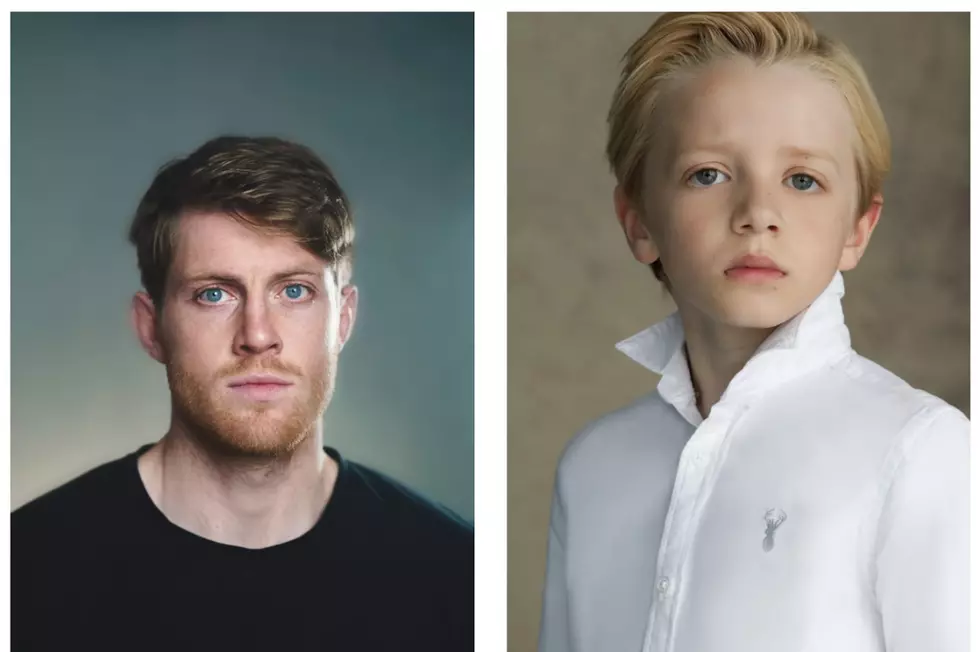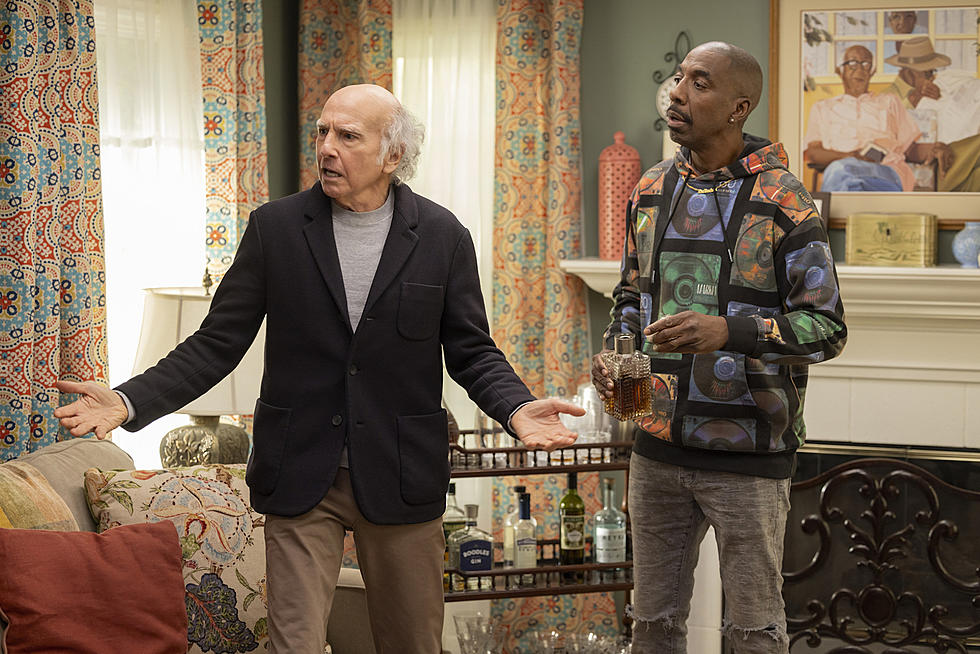
‘Girls’ Season 5 Delivers More of the Same, But Different
There’s a Hollywood way of thinking when it comes to franchises and reboots: Give the audience more of the same, but…different. Stick to what fans love about the original property, while also giving them something a little new. The same concept could be translated to personal growth throughout our 20s: We remain the same, but ever-so-slightly change over time. That change comes at the speed of molasses as we resentfully trudge through maturity, much like the women of HBO’s Girls. Season 5 brings some change, sure, but it is mostly more of the same — not that that’s a bad thing.
Listen, if you weren’t sold on Lena Dunham’s series within the first two seasons, Season 5 isn’t going to win you over (and honestly, if you’re still watching, you should just stop; life is too short for hate-watching). The season premiere, “Wedding Day,” has a vague alienating quality, even for the most dedicated Girls viewer. Confined to a country estate for the entire half-hour, the premiere largely splits itself between two rooms: That of the bride (yup, Marnie) and that of the groom (yup, Desi, ugh). Quite a bit of time has obviously passed since Season 4, but Girls isn’t interested in explaining how much time or everything that’s happened since Hannah rejected Adam, Shoshanna took a job in Tokyo and Marnie accepted Desi’s whiny proposal.
For a show that relishes in the tediously emotional and verbose specifics of daily life, Dunham & Co. successfully avoid re-hashing the previous year’s events and falling into expositional traps; it’s not a little less conversation, a little more action, but something like it for this show, anyway. “Wedding Day” smartly focuses on the hours leading up to the titular act, which offers the best possible setting to showcase what’s changed and what hasn’t. Marnie is still as superficial and narcissistic as ever; Hannah is still stubborn and selfish, though she doesn’t seem interested in scheduling the day’s beauty appointments, which indicates at least some progress from her OCD-addled troubles; Shosh remains effervescent; Jessa is still a free-spirited jerk lost in her own orbit around some far-flung planet we’ll never understand; Adam is awkward; Elijah is the absolute best human; Ray is still an old man.
“Wedding Day” almost feels like watching Girls satirize itself, with Hannah’s tacky amazonian dress readjustment and Jessa making bold declarations about washing her hair in the river and running through a field to let nature dry it for her. After spending a year away from these characters, their re-introduction is almost jarring. The dialogue feels more heightened, and more than ever before these women feel like caricatures of people we used to be or know.
Thankfully, things revert back to the comfort zone (though not quite) by Episode 2, which follows up on the premiere’s most eventful moment — one involving Jessa and Adam. The next few episodes explore a growing but hesitant relationship between the two recovering addicts, whose delightfully odd friendship has proven to be far from mismatched. Against my fangirl protests of anyone macking on Adam besides Hannah, this particular plot is one of the best things about Season 5 so far, offering Jemima Kirke and Adam Driver some of the best, most complex material to date.
Jessa is conflicted about her feelings for Adam because she’s friends with Hannah, but why is she still friends with Hannah? Their friendship has been built around longevity and the idea that they embrace one another’s selfish indulgences and emotional failings, but they’ve long been moving — willfully — in different directions. By Episode 4, Girls addresses a commitment to a friendship that no longer seems beneficial to either party, as Jessa’s refusal to consummate her feelings with Adam translates to resentment toward Hannah — as if Hannah could possibly be grateful for a courtesy that she doesn’t even know about.
Episode 4 offers even more to chew over with Jessa and Adam, and given their identity as recovering addicts, we’re left to wonder if they really do have feelings for one another or if they’re just chasing another high that’s impossible to obtain.
The other great thing about Season 5 is Shoshanna’s adventures in Tokyo, as Zosia Mamet finally gets a worthwhile arc. Episode 3 is entirely Shosh-centric, and paints Tokyo as a place that she may have invented in her busy and bubbly mind. Torn between a blossoming crush on a Japanese co-worker and settling for that white bread boyfriend back home, Shosh feels more adrift than ever — though she’s the character who has arguably evolved the most over the course of the four previous seasons. Unlike her friends, Shosh knows that self-awareness means nothing if you do nothing with it.
Hannah doesn’t totally remain in the backseat, and finds herself confronted with familiar relationship problems: Fran moves in not long into their relationship (just like Adam), she becomes increasingly, irrationally jealous (just like she did with Adam) and the pair engage in petty, overblown arguments over their respective self-serving behavior. As it often has, Girls perfectly points to the root of every argument in every relationship: That the other person is not behaving as we expect them to behave.
But rather than gracefully meditate on the larger implications of our irrational ideals, Girls keeps things intimately focused on the messier consequences of those ideals much to its benefit. As such, each episode feels like we’re dropping in on a specific moment, as if we’re watching a visual essay plucked from a weekly journal entry. Although Girls has long abandoned the Hannah-vision that permeated earlier seasons, the format remains largely the same — plot threads (like the photos in Fran’s phone) are dropped by the next episode, just as those personal conflicts would realistically be dismissed and mostly forgotten by the next day.
There are ongoing arcs, like Jessa and Adam, and Marnie and Desi — the latter of which is the weakest of the first four episodes. Marnie ceased being interesting somewhere around Season 3, and her false assertions of personal growth are no longer as resonant from a viewer standpoint; she is emotionally inert, but rather than paint an empathetic portrait of a person who willfully refuses genuine self-improvement, Marnie represents a banal superficiality and has become the least relatable character in a show full of characters who challenge our empathy.
But there is always Elijah, who represents a lively and entertaining superficiality; he is the anti-Marnie. Elijah is also stuck in life: He’s working for Ray at the coffee shop and treating it with the appropriate amount of seriousness (as in none whatsoever), but a new love interest in the form of a handsome news personality (played by the intensely great Corey Stoll) presents some potential evolutionary possibilities.
If all of this sounds familiar to you, that’s because it is. Hannah, Marnie, Jessa, Shosh, Adam, Ray — each of them so painfully self-focused, as if they fell into a mirror and cannot get out. They may have jobs and responsibilities, they may be staying sober and improving their material prospects, but these things do not equate with real growth and maturity. Empathy, generosity of spirit, genuine selflessness and caring for the happiness of others: These are the real signifiers of maturity.
If you’ve been asking when these Girls will grow up, the answer isn’t in Season 5. Things are still the same, but just a little different.
More From ScreenCrush









